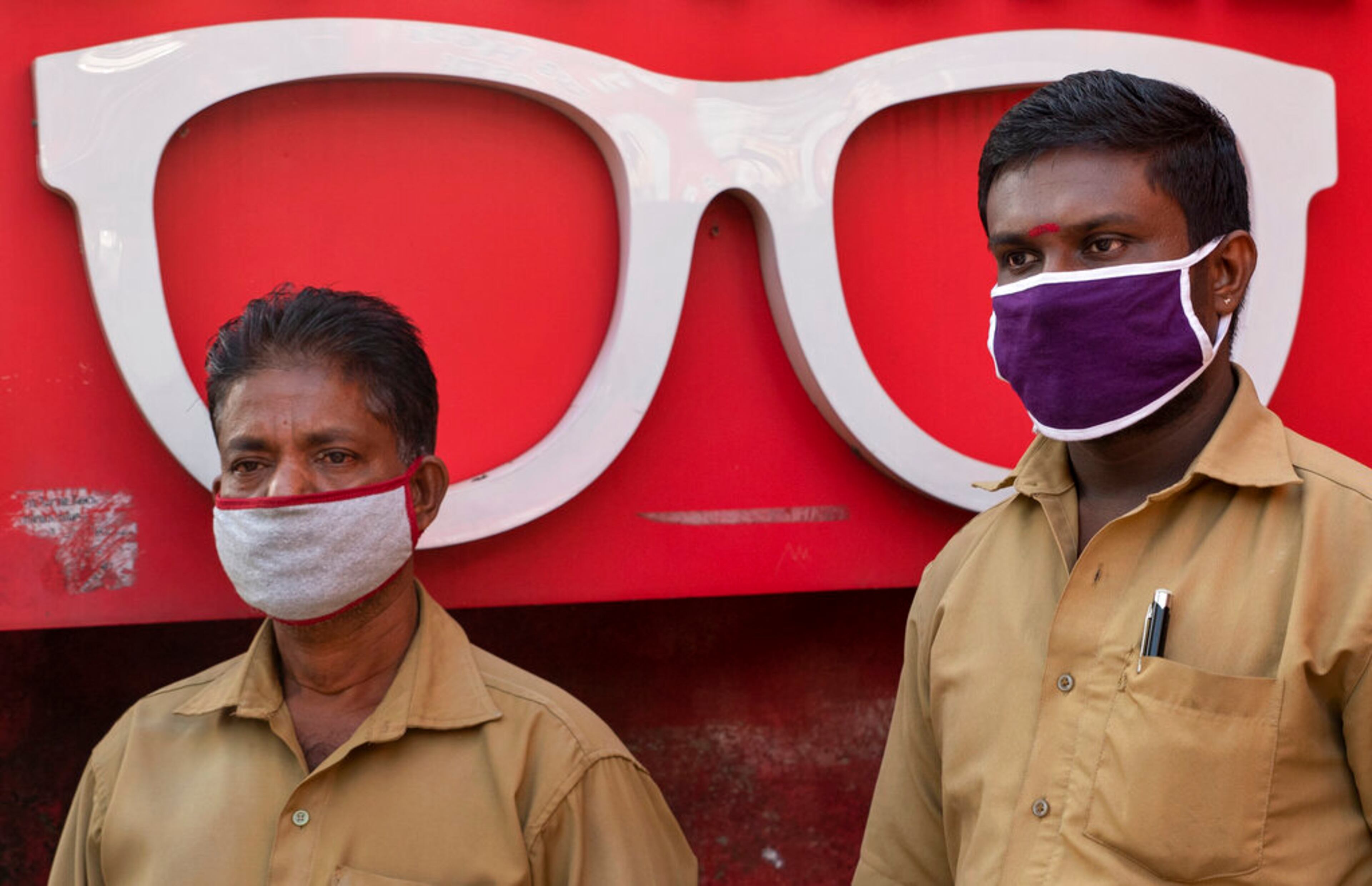‘Coming back and biting us’: US sees virus resurgence
A coronavirus resurgence is wiping out two months of progress in the U.S. and sending infections to dire new levels across the South and West, with administrators and health experts warning on Wednesday that politicians and a tired-of-being-cooped-up public are letting a disaster unfold.
The U.S. recorded a one-day total of 34,700 new COVID-19 cases, the highest level since late April, when the number peaked at 36,400, according to the count kept by Johns Hopkins University.
While newly confirmed infections have been declining steadily in early hot spots such as New York and New Jersey, several other states set single-day records this week, including Arizona, California, Mississippi, Nevada, Texas and Oklahoma. Some of them also broke hospitalization records, as did North Carolina and South Carolina.
“People got complacent,” said Dr. Marc Boom, CEO of the Houston Methodist hospital system. “And it’s coming back and biting us, quite frankly.”
Stocks slid on Wall Street as the news dampened hopes for a quick economic turnaround. The Dow Jones Industrial Average lost more than 700 points for a drop of 2.7%. The broader S&P 500 fell 2.6%.
The virus has been blamed for more than 120,000 U.S. deaths — the highest toll in the world — and more than 2.3 million confirmed infections nationwide. On Wednesday, the widely cited University of Washington computer model of the outbreak projected nearly 180,000 deaths by Oct. 1.
California reported more than 7,100 new cases, an all-time high. Florida’s single-day count surged to 5,500, a 25% jump from the record set last week and triple the level from two weeks ago.
In Texas, which began lifting its shutdowns early on, on May 1, hospitalizations have doubled and new cases have tripled in two weeks. Gov. Greg Abbott told KFDA-TV that the state is facing a “massive outbreak” and might need new local restrictions to preserve hospital space.
The Houston area’s intensive care units are nearly full, with coronavirus patients filling about 1 in 4 beds, and two local public hospitals are running at capacity, Mayor Sylvester Turner said.
“We need everybody to behave perfectly and work together perfectly” to slow the infection rate, Houston Methodist’s Boom said. “When I look at a restaurant or a business where people ... are not following the guidelines, where people are just throwing caution to the wind, it makes me angry.”

In Arizona, emergency rooms are seeing about 1,200 suspected COVID-19 patients a day, compared with about 500 a month ago. If the trends continue, the state will probably exceed its hospital bed capacity within the next several weeks, said Dr. Joseph Gerald, a University of Arizona public health policy professor.
“We are in deep trouble,” said Gerald, urging the state to impose new restrictions on businesses, which Gov. Doug Ducey has refused to do.
Infectious disease expert Dr. Peter Hotez of the Baylor College of Medicine in Texas said he worries that states will squander what time they have to head off a much larger crisis.
“We’re still talking about subtlety, still arguing whether or not we should wear masks, and still not understanding that a vaccine is not going to rescue us,” he said.
The Texas governor initially barred local officials from fining or penalizing anyone for not wearing a mask as the state reopened. After cases began spiking, Abbott said last week that cities and counties could allow businesses to require masks. Abbott and Ducey are Republicans.
We pay for the right to publish content from The Associated Press because we think it’s important to help you stay up to date on national and world news. Our staff typically compiles these reports, adding supplementary information from other news sources to emphasize angles that are important to our readers.
Some business owners are frustrated that officials didn’t do more, and sooner, to require masks.
“I can’t risk my staff, my clientele, myself, my family and everybody else in that chain just because other people are too inconvenienced to wear a piece of cloth on their face,” said Michael Neff, an owner of the Cottonmouth Club in Houston. He closed it down this week so staffers could get tested after one had contact with an infected person.
North Carolina Gov. Roy Cooper, a Democrat, ordered people to wear masks in public as the daily count of hospitalizations and new cases hovered near records. In Florida, several counties and cities recently enacted mask requirements and cracked down on businesses that don’t enforce social distancing rules.
In a sign of the shift in the outbreak, New York, Connecticut and New Jersey announced they will require visitors from states with high coronavirus infection rates to quarantine themselves for 14 days. That is a turnaround from March, when Florida issued such an order for visitors from the New York City area, where cases were soaring.
»RELATED: Coronavirus: How many people have died from the virus in the US?
Cases are also surging in some other parts of the world. India reported a record-breaking one-day increase of nearly 16,000 cases. Mexico and Iraq hit new highs as well.

But China appears to have tamed a new outbreak in Beijing, once again demonstrating its ability to quickly mobilize its vast resources by testing nearly 2.5 million people in 11 days. China on Wednesday reported 12 cases nationwide, down from 22 the day before.
In Europe, countries are easing or increasing restrictions as the outbreaks evolve.
John Nkengasong, chief of the African Centers for Disease Control and Prevention, said the outbreak on the continent is “picking up speed very quickly” as more countries loosen lockdowns.
Worldwide, more than 9.2 million people have been confirmed infected, and close to a half-million have died, by Johns Hopkins’ count.
___
Associated Press reporters around the world contributed.

